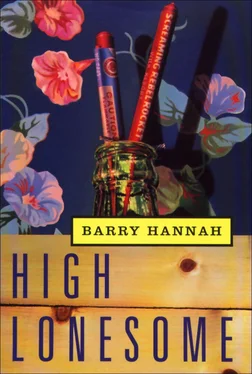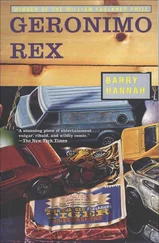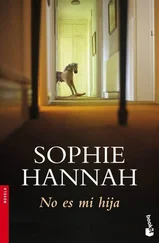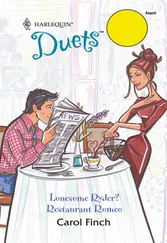Jane was five years older than me. I’m not sure whether we were jaded eccentrics or new discoverers of the body electric. In different rooms decorated in subtle “rhythm and hue” changes — some help from the St. Louis granny of an interior decorator she had in the wings, a naughty queer I liked too — I delivered myself unto Jane, at her shy suggestions, as French, Greek/African (where the bottoms are of more interest), Italian, then just straight-on Missouri missionary, always talking while making love the way she said her ex, no real man, never did. Jane had a girl’s voice I found highly arousing, and I hope I did not sound too silly like Harry Truman as a mad poet, because Jane could sing, I mean around the house she sang anything well, on key and with luxury. I asked her one day, laughing, why we didn’t sometimes just get on an airplane and visit some of the countries, since I was so busy enacting the United Nations. I’d be glad to pay for it all. Then she shocked me, and I began looking down at the lake below her house, a beautiful but saddening view through the hanging moss.
“I never traveled. I never intend to travel. I don’t like far parts. We traveled enough getting our things for this house. We’ve got the big-screen TV and all the good stations. What more is there to see?”
She’d got a handsome divorce settlement and had her own money anyway, and a doctor father who’d given her this place as a gift. This luck of mine, well I quit boasting inside about it just then. The garter I gave her with I WANT IT EVERY DAY printed on, which she had worn until we got married — I asked her about it. She said wearing it nude with hose on had always made her feel foolish. Now I felt like a pressing creep without much to give from my world.
In my world I had straightened and ordered my supplies and parts in the showroom and taken down the posters of half-naked girls leaning across the hoods of Maseratis and Lotuses, things that pleased me and made my customers buy something expensive for the sheer hell of it, a ticket to half-brassieres in foreign towns. Mary helped me. In our days of intimacy she’d never said anything about the poster women, and now made no fun of me when they came down at Jane’s request.
Mary and I could never have made it as lovers. I don’t like to sleep with women who are smarter than me. But I’d never had a real friendship with a woman until Mary, and I was enjoying the pleasant wonder of it very much, when I was not suicidal. Now the rare times Jane came in the store, if Mary was there Jane looked through her with such frozen smiling malice that Mary offered to never come around again. She had plenty to do, with her own painting, which she could have sold even more of at good fees if she’d cared. But I begged her not to leave. I don’t believe I could have stood it.
On Jane’s idea of having the world on our big-screen television: The very next day I had some trouble with the boy who works my stockroom. I knew he was on something, but he didn’t steal and he did a fair job. I was amused by his old-man’s miseries at age twenty-three, compounded by the fact he couldn’t read and thought I didn’t know that. That afternoon he came in bleary and in a rage and asked me if I kept a pistol. He needed to kill somebody who had just insulted him for the last time.
“Why no, Byron. My God, fool. You’ll go to prison. Think this out.”
“I have. They got color TV in prison.”
He was high on something, but he had never been more serious. He was ready for his life to be over and resign himself, with relish, to the high-gloss realm of somebody else’s vision from now on. I could barely reply. I’d never known how he hated himself and his life so much. Even in my worst depressions I was still snob enough to know I would take out myself in my own act, in my own show, never by the congealed vision of others who need you half-dead in a chair to own the world. Then I asked Jane something that had bothered me and I was afraid to know.
“You said I was priceless. That I had something priceless. But what is it? Why am I special?” The fear was creeping. I was hard bothered all over again.
She thought too long, as if it weren’t really that big a question and she’d forgotten.
“Well … I saw that painting of yours you didn’t want me to see, under your bed in your townhouse apartment, about a year ago. I really like it. It’s very great art. I loved you even more for thinking it was no good. Your very high standards, all private like that.”
But it was wretched and derivative and never got much past simple meanness, like much of my work. The only reason it had any merit was I’d done a fair cartoon in the Thomas Hart Benton mode showing ghouls — my customers — with long arms and grief-stricken faces pulling out automobile parts from their bodies — you saw the outlines where they’d been ripped out, bloody — and demanding replacements. All of this with a hideous backdrop, too yellow. I kept it as a reminder, sleeping over it, that it was as far as I would ever push in creation. It was only a milestone. I had no vanity about it.
“You made those people out the real Frankensteins they are, like those people around those wrecks we saw. Thank God we’re not like them at all, what a world. You cutey.”
“But we were there. They made us hot, Jane, remember?”
“I got hot loving that I wasn’t them. It still gets me hot knowing you’re not my ex-husband. He was so dumb and dull. Never once did he say my cunnie was the best in the world, like you do. I’m so so really happy you’re not him, baby. He was good, he was successful,” she began tearing up, and I was amazed, “but let me tell you this: he never had high standards. He accepted just about anything the way it was and just had these tired grunts every now and then.”
It’s impossible to overdeclare my disdain for dying a wise old man, knowing every salient point, sitting there in my last room as with a multistory library in a cone over my ears. I was hugely sorry I’d asked about my pricelessness, having learned only what I was not. That our love was going along so well out of spite, like how many other loves? — the same, no different. “Living well is the best revenge.” “Prepare to make the memories,” say the beer and camera ads. All you need is beer, camera, and revenge and you’re a player.
I walked out of the house down the hill toward the lake. I needed to talk to Mary, but then I found a gift by accident. I was sitting on the dam getting bit by chiggers and mosquitoes and deer flies but refusing to move or get in the water, which I needed to do.
An animal came up next to me, which I believed to be an apparition in my periphery. It was about the size of a big house cat. It kept moving slowly towards me the two hours, it must have been. But I looked ahead, not even a weed in my mouth, nothing in front but a blind thousand yards. I finally felt it so close that I looked around. It was a large and handsome raccoon, regarding me and not moving now as I stared straight at it. Its hair was so deep and rich, brown and black, it seemed beyond real, so prosperous out here on the beaches of the encroaching shore lots with their moody houses on the hill. I stood, and after retreating only inches to gather itself back, it took stock of me without nervousness then eased up closer and closer — a yard away — and decided I was no threat. It was without the ordinary panic of these careful beasts. Did it know me? Was I something like a body washed up out of a deep lake, the odor of a sunburned slug? He looked to be truly working me for a few minutes. I got uncomfortable and started walking around the lake. This lover of marine carrion fell in step just a little to my right on the water side.
Lovers, even middle-aged lovers I guess, may not be good people, but if they were like me just now, after the physical ardor of two months after a wait of over a year, they do have innocence. They’re so worn out there is hardly anything left but the sleepy wonder of infants. I was stumbling along as if on the ground of the moon, reading everything with intense color in a doubled hurtful light, near the result of those drugs I took just a few of at Columbia, but with more suspense because I was clean. The raccoon paced along. When I knew it did not want to eat me, I think we became chums. We walked around the lake and back to where I was, and this thing we repeated three or four times a week in the last of the winter, which was mild.
Читать дальше












